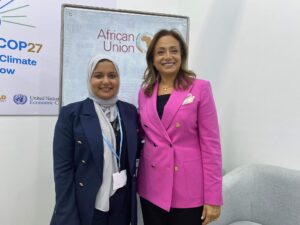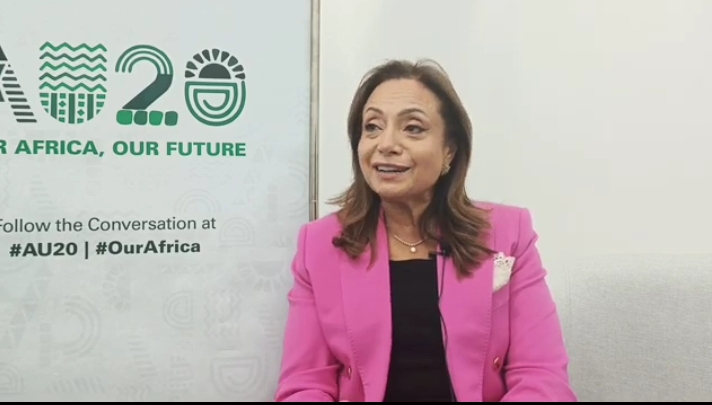African Union is currently joining hands with the African Development Bank (AfDB), Africa50 and other partners under the umbrella of Alliance for Green Infrastructure in Africa (AGIA) to mobilise more investments for bankable projects that seek to promote the resilience and sustainability of the continent’s infrastructure.
AGIA objectives were highlighted at COP27 in Sharm El Sheikh with more focus on an initiative to mobilise $10 billion to fund certain projects in this regard within the framework of the first phase.
In an interview with the Egyptian Mail, Amani Abou-Zeid, African Union (AU) Commissioner for Infrastructure and Energy, clarified that
AGIA would only fund projects with three to four years timescale for execution. “we need things to move fast and at scale,” she stressed.
 Abou-Zeid, meanwhile, stressed that COP27 is Africa’s COP, adding that it came timely.
Abou-Zeid, meanwhile, stressed that COP27 is Africa’s COP, adding that it came timely.
“Africa has been having challenges for a long time. However, Africa has also been having many great achievements over the last two decades,” she noted.
However, since 2020, the world has been going through a very tough time in light of the succession of crises.” Unfortunately,Women are disproportionately affected .”
African governments have been trying to address so many challenges while continuing work on the development agenda.
“Everyone on this earth is grappling with the high prices, the lack of certain food staples and expenses of transport. All these issues are affecting our daily lives,” she noted.
According to the AU commissioner ,the continent has been adversely affected by the climate change more than any other region in the world. That is why, COP27 is about implementation. “And you’ve seen of course, all the buzz around energy and renewable energy. Africa has the largest share of renewable energy in its energy mix. More than 40% of our energy comes from renewable sources. Kudos to our continent,” she said with enthusiasm.
However, Abou-Zeid stressed the need for more efforts as we still have 600 million people who do not have access to electricity and many, many more who do not have access to clean cooking. “But having said that, we have to recognise that we have been doing great with the resources that we are having.
We also have to bear in mind that we are at the forefront.”
Abou-Zeid also stressed the need to actually seize the urgency of the situation to walk the talk.” We have specific ideas on the mechanisms and modalities for implementation and industrialisation. We still need transformative industries,” she explained.
According to the AU commissioner, there are four African countries producing sustainable aviation fuel.
It is worth mentioning that there is a programme called Programme for Infrastructure Development in Africa ( PIDA). The programme targets projects related to transport and ICT sectors.
“We are scrutinising the process to come up with a list of 69 projects divided equally across sector’s and also across regions so that each nation has a fair share of safe energy or ICT. We made sure that the distribution of this process also is representative of the content.”
The official also emphasised the transparency of the selection process as you can find the list of the projects on the internet.
According to the African Union, PIDA provides a common framework for African stakeholders to build the infrastructure necessary for more integrated transport, energy, ICT and trans-boundary water networks to boost trade, spark growth and create jobs.
Abou-Zeid added that all the projects have to environmentally friendly in addition to including women. “They also have to use smart technologies,” she added.
Regarding enhancing women engagement, Abou-Zeid stressed that women are part and parcel of every process throughout the value chain from upstream all the way to downstream. “Big finance is also required for women.”






Discussion about this post